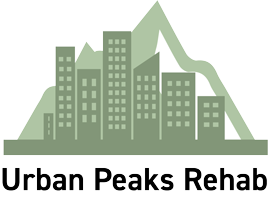
SAMHSA defines recovery as “a process of change through which people improve their health and wellness, to live self-directed lives, and strive to reach their full potential”. One of the main pillars of recovery is home, or the quality of having a stable and safe place to live. Having a consistent, peaceful and stable place to return to each day can help remove uncertainty and anxiety that can lead to self-destructive behaviors. In recovery, it can be stressful to find a place to call home that is safe from drugs, located close to recovery resources, and affordable. But it is not impossible! What elements of housing are important to maintaining recovery and a quality of life that allows a person to flourish?
Where to Begin
The process of recovery is highly individualized and personal for everyone. Some of the possibilities for housing may include sober living houses, living with family or friends who accept and support recovery, or finding an apartment or a house to rent or own. The correct choice for the person in recovery will all depend on various factors, such as availability, finances, and the level of care needed. Meeting with trusted friends in recovery or family may help in making the correct decision.
Finding Your New “Home”
Sober Living
The internet is the fastest and most comprehensive tool to help find recovery housing. Sober living homes are structured, safe and substance-free living environments for individuals in recovery. They are known as sober houses, recovery homes, halfway houses or recovery residences. Many programs are run by their residents, and they usually put a large emphasis on peer support as an essential component of recovery. Some sober living homes are even structured for adults and their children!
Family
Perhaps the person in recovery has a safe place to live with family or friends. This can be a wonderful opportunity to begin repairing relationships that may have been damaged by addiction. However, it is also imperative to ensure that this is the best environment to support recovery. Before any decisions are made, have a conversation with the roommates. Do they understand what recovery is and what it looks like? Do they acknowledge that it is triggering and potentially dangerous to be around drugs and/or alcohol? Are they accepting of your individual recovery pathway and routines? Having an open and honest conversation about these factors can lay a solid foundation for a safe and comfortable household.
A Place of Your Own
Many times, people in recovery may be facing special barriers to housing, such as criminal history and/or credit history. One of the best ways to combat against these challenges is to find a private renter. Many corporate rental agencies run strict background checks and/or credit checks, and may disqualify potential renters based on those factors alone. Don’t be discouraged! Often times, private landlords are willing to make an exception for those living in recovery. Creating a clear line of communication may make all the difference.
If a person is unsure of what type of “home” they are looking for, or they need help finding resources, they can reach out to their providers, groups, recovery meetings and so forth for further support and direction.
